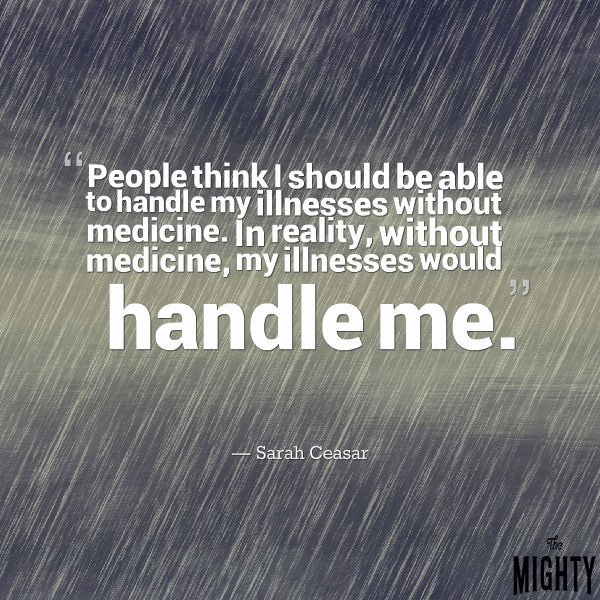
How are you? How many times a day or over the course of a week are you asked this? We say that sentence so often without really meaning it. When was the last time that you asked that question and actually waited to hear the answer? If you heard the answer, were you really listening? It's a simple question with a not so simple answer at times.
October 2nd to 8th is Mental Illness Awareness Week in Canada. 'Illness', rather than 'health' - there is a subtle difference. Mental Illness Week is an opportunity to speak about the realities of mental illness rather than just overall mental health (which we all have, by the way, just like physical health). And the reality is that mental illness is still so misunderstood, which is why so many of us shy away from talking about it or reaching out for help or treatment if we think we might be ill.
A mood disorder can have a large impact on one's life. Depression, for example, can impact everything from your physical health (chronic headaches and back pain are not uncommon) to your cognitive abilities (difficultly concentrating), in addition to an overall depressed mood. It can be all encompassing for the individual.
One of the more controversial subjects related to mood disorders is the subject of treatment. There are very real barriers to treatment and recovery. A big one is stigma. When society continues to downplay the importance and validity of mental illness in comparison to physical illness, it helps no one. Stigma is incredibly damaging. Stigma discriminates. Stigma kills. It's real and it's serious.
Admitting to yourself that you are not well and that you might need help can be a very steep hill to climb when you think that you won't be supported or believed. Receiving a diagnosis of depression can be a hard pill to swallow. Now imagine that you choose a course of treatment and, again, the world tells you that you are wrong. Which brings me to medication.
To medicate or to not medicate. That is the question. And it's a big question for so many of us who experience a mood disorder. And in Canada, that is one out of five of us. Not an insignificant number, certainly.
To medicate or to not medicate. That is the question. And it's a big question for so many of us who experience a mood disorder. And in Canada, that is one out of five of us. Not an insignificant number, certainly.
Before I go any further I want to say this: every single person who experiences a mood disorder is unique. I do not believe that one size fits all when it comes to treatment. I am not promoting one form of treatment over another. What I am strongly encouraging is for those of you who may require treatment, that you arm yourself with knowledge and be honest with your physician about what you are experiencing. Then make a decision that is best for YOU.
Over the years I have had a partnership with my doctor; we have discussed medications as well as natural options and talk therapy. As my illness has evolved, so has my treatment. I am not ashamed to say that I take a medication. But I don't consider that to be a cure or the answer to my illness. Nope - not at all. Taking a medication is just one tool in my mental health kit. Among the other tools are things such as plenty of sleep, a balanced diet and regular exercise (OK, full disclosure - this is an ongoing work in progress!), a strong social network for support, a fulfilling job, and a sense of purpose. When my depression was deep, I also participated in cognitive behavioral therapy.
Over the years I have had a partnership with my doctor; we have discussed medications as well as natural options and talk therapy. As my illness has evolved, so has my treatment. I am not ashamed to say that I take a medication. But I don't consider that to be a cure or the answer to my illness. Nope - not at all. Taking a medication is just one tool in my mental health kit. Among the other tools are things such as plenty of sleep, a balanced diet and regular exercise (OK, full disclosure - this is an ongoing work in progress!), a strong social network for support, a fulfilling job, and a sense of purpose. When my depression was deep, I also participated in cognitive behavioral therapy.

KB xo
* For more information about treatment visit the Mayo Clinic website.
* Learn about the Not Myself Today campaign and learn about the impact that mental illness has in Canadian workplaces.

No comments:
Post a Comment